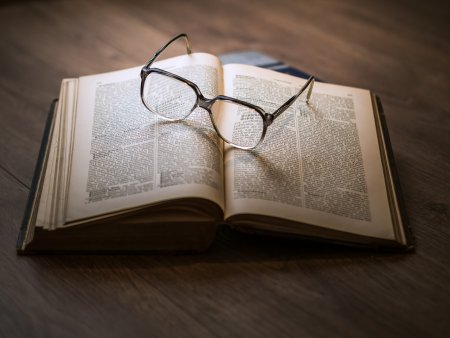Упр. 212. Раскройте скобки, употребляя глаголы в Past Simple либо Past
Упр. 212. Раскройте скобки, употребляя глаголы в Past Simple либо Past Perfect. 1. When I (to come) home, mother already (to cook) dinner. 2. When father (to return) from work, we already (to do) our homework. 3. When the teacher (to enter) the classroom, the pupils already (to open) their books. 4. Kate (to give) me the book which she (to buy) the day before. 5. Nick (to show) the teacher the picture which he (to draw). 6. The boy (to give) the goats the grass which he (to bring) from the field. 7. Mother (to see) that Nick (not to wash) his hands. 8. The teacher (to understand) that Lena (not to do) her homework. 9. I (to know) that my friend (not yet to come). 10. Tom (to return) from the cinema at five o'clock. 11. Tom (to return) from the cinema by five o'clock. 12. I (to finish) my homework at seven o'clock. 13. I (to finish) my homework by seven o'clock. 14. He (to think) that he (to lose) the money. 15. Ann (to tell) me that she (to see) an interesting film. 16. When I (to wake) up yesterday, father already (to go) to work. 17. Nick (to think) that his father (not yet to come) home. 18. Mary (to tell) us that she (to cook) a good dinner. 19. Yesterday I (to find) the book which I (to lose) in summer. 20. When we (to come) to the station, the train already (to leave).
Упр. 213. Раскройте скобки, употребляя глаголы в Past Simple либо Past Perfect. 1. Не (to study) French before he (to enter) the university. 2. Lanny (to say) that he (to get) his education in Cape Town. 3. The boy (to want) to act the main part in the play because he (to organize) the theatre. 4. Lanny (not to know) who (to attack) him in the darkness. 5. The girl (to be) glad that she (to find) a seat near the window. 6. Suddenly he (to remember) that he (not to ring) her up in the morning. 7. By the time the train (to reach) the city, he (to make) friends with many passengers. 8. When his uncle (to leave), he (to hurry) to the station to book a ticket. 9. She (to think) that Gert and Lanny (to quarrel). 10. By the time we (to come) to see him, he (to return) home. 11. During the holidays my friend (to visit) the village where he (to live) in his childhood. 12. When they (to enter) the hall, the performance already (to begin). 13. When I came home, my mother (to tell) me that she (to receive) a letter from grandfather. 14. Where you (to work) before you (to enter) the institute? 15. By two o'clock the teacher (to examine) all the students. 16. On my way to school I (to remember) that I (to leave) my report at home. 17. All my friends (to be) glad to hear that I (to pass) all the examinations successfully. 18. Poor Oliver (to lie) unconscious on the spot where Sikes (to leave) him. 19. He (to open) his eyes, (to look) around and (to try) to remember what (to happen) to him. 20. All the passengers (to see) at once that the old man (to travel) a great deal in his life.
Упр. 213. Раскройте скобки, употребляя глаголы в Past Simple либо Past Perfect. 1. Не (to study) French before he (to enter) the university. 2. Lanny (to say) that he (to get) his education in Cape Town. 3. The boy (to want) to act the main part in the play because he (to organize) the theatre. 4. Lanny (not to know) who (to attack) him in the darkness. 5. The girl (to be) glad that she (to find) a seat near the window. 6. Suddenly he (to remember) that he (not to ring) her up in the morning. 7. By the time the train (to reach) the city, he (to make) friends with many passengers. 8. When his uncle (to leave), he (to hurry) to the station to book a ticket. 9. She (to think) that Gert and Lanny (to quarrel). 10. By the time we (to come) to see him, he (to return) home. 11. During the holidays my friend (to visit) the village where he (to live) in his childhood. 12. When they (to enter) the hall, the performance already (to begin). 13. When I came home, my mother (to tell) me that she (to receive) a letter from grandfather. 14. Where you (to work) before you (to enter) the institute? 15. By two o'clock the teacher (to examine) all the students. 16. On my way to school I (to remember) that I (to leave) my report at home. 17. All my friends (to be) glad to hear that I (to pass) all the examinations successfully. 18. Poor Oliver (to lie) unconscious on the spot where Sikes (to leave) him. 19. He (to open) his eyes, (to look) around and (to try) to remember what (to happen) to him. 20. All the passengers (to see) at once that the old man (to travel) a great deal in his life.
1. Не had been studied French before he entered the university. 2. Lanny said that he had got his education in Cape Town. 3. The boy wanted to act the main part in the play because he had organized the theatre. 4. Lanny didn't know who had attacked him in the darkness. 5. The girl was glad that she had found a seat near the window. 6. Suddenly he remembered that he hadn't rung her up in the morning. 7. By the time the train reached the city, he had мейд friends with many passengers. 8. When his uncle had left, he hurried to the station to book a ticket. 9. She thought that Gert and Lanny had quarreled. 10. By the time we came to see him, he had returned home. 11. During the holidays my friend visited the village where he had lived in his childhood. 12. When they entered the hall, the performance had already begun. 13. When I came home, my mother told me that she had received a letter from grandfather. 14. Where had you worked before you entered the institute? 15. By two o'clock the teacher had examined all the students. 16. On my way to school I remembered that I had left my report at home. 17. All my friends were glad to hear that I had passed all the examinations successfully. 18. Poor Oliver lied unconscious on the spot where Sikes had left him. 19. He opened his eyes, looked around and tried to remember what had happened to him. 20. All the passengers saw at once that the old man had traveled a great deal in his life.
-
Вопросы ответы
Статьи
Информатика
Статьи
Физика.
Геометрия.
Разные вопросы.
Обществознание.
Математика.
Химия.
Русский язык.
Разные вопросы.
Разные вопросы.
Математика.




